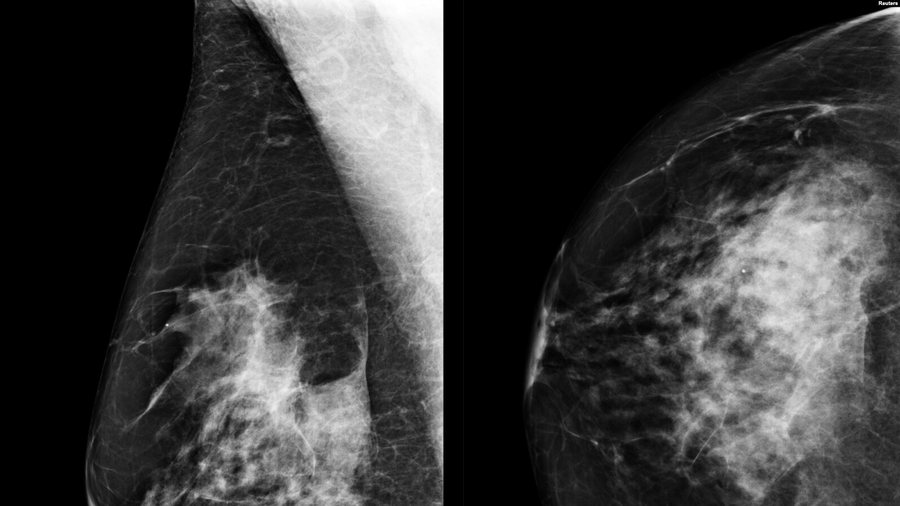
A recent study concludes that doctors are able to detect breast cancer more often when they use artificial intelligence to help read mammogram results. As correspondent Dora Mekouar reports, artificial intelligence is helping detect breast cancer, increasing the detection rate to over 17 percent.
When doctors used artificial intelligence to analyze mammograms of more than 460,000 women in Germany, they were able to detect one more case of cancer for every 1,000 women, compared to cases analyzed by doctors alone, according to researchers. The study, published in the journal Nature Medicine, is the largest study ever conducted with patient-specific data on the impact of using artificial intelligence in breast cancer detection.
Doctor Alexander Katalinic was the lead author of the study, A2 reports.
"The detection rate of breast cancer is better and this is very strong evidence. And based on this evidence, we should start using more artificial intelligence in breast cancer screening and eventually this should be the standard," he says.
Does this improved detection rate – at nearly 18 percent – mean that artificial intelligence is more advanced than doctors at detecting breast cancer?
"Artificial intelligence can replace reading results by doctors to some extent. But the question is how far do we want to go with this development? This is not just a question of science, but also a question for society. How much does society trust artificial intelligence?" says Dr. Katalinic.
Artificial intelligence also helped reduce false positives. However, the AI failed to detect some cases of cancer.
But according to the study results, doctors' failure to detect breast cancer was 10 times higher than artificial intelligence.
Stefan Bunk is the co-founder of the Berlin-based healthcare technology company Vara, which developed the artificial intelligence used in this study.
"Artificial intelligence, unlike humans, doesn't get tired, right? I mean, artificial intelligence works the same way at 2 a.m. as it does at noon. So that's definitely an advantage, and it's also one of the reasons I think it can detect cancer that doctors don't," says Vara co-founder Stefan Bunk.
There are concerns that the use of artificial intelligence in cancer detection could result in a shortage of specialist radiologists.
"Complex cases, when several perspectives need to be taken into account, when you need to talk to the patient, are the cases where expertise is needed and when a radiologist is needed, so they need to continue training," he says.
But there is a positive side to artificial intelligence.
"Artificial intelligence is an opportunity and a factor that should make us more enthusiastic about our field. Specialized radiologists will have the space, time and concentration to focus on more complex cases," says Dr. Wei Tang from the University of Texas.
Radiology professor Wei Tang was not involved in the study, but she is optimistic.
"The data is very compelling. The increased detection rate of cancer cases, the reduction in false positives, and the potential impact these findings have on doctors and their level of fatigue are all very, very positive," she says.
For now, collaboration between radiologists and artificial intelligence may be the best way to combine the strengths of both.
“The combination of doctors with artificial intelligence is much better than the doctor's opinion alone,” says Dr. Katalinic.
This could lead to better outcomes for women./ Voice of America (A2 Televizion)











